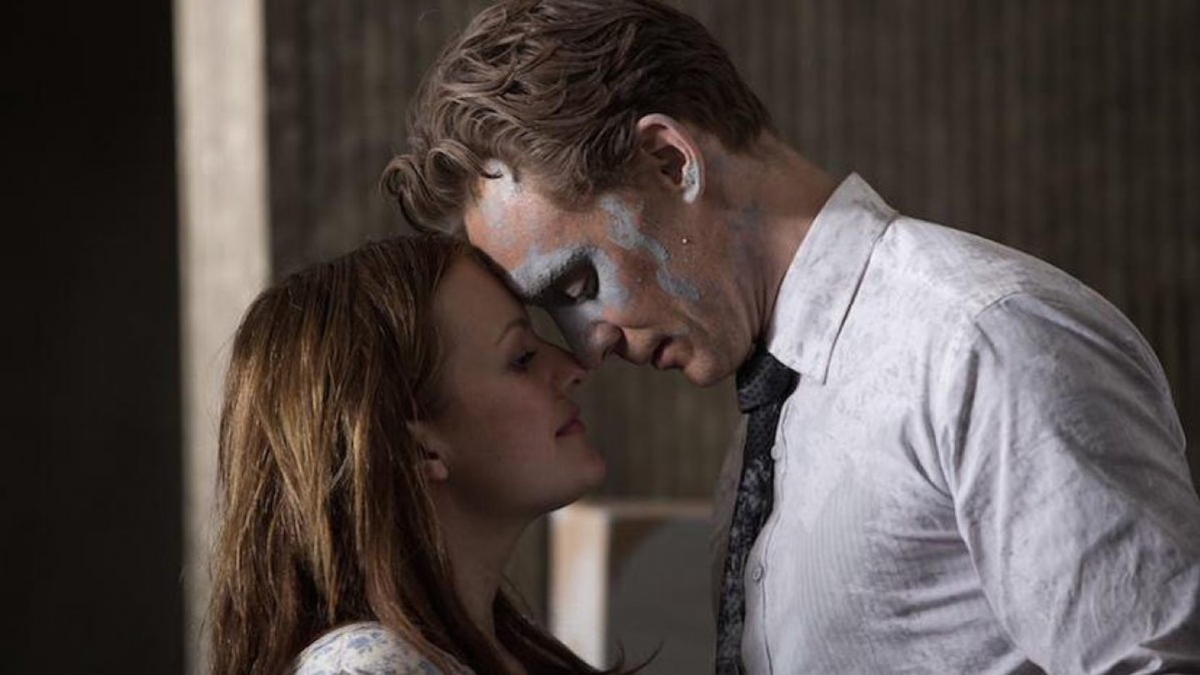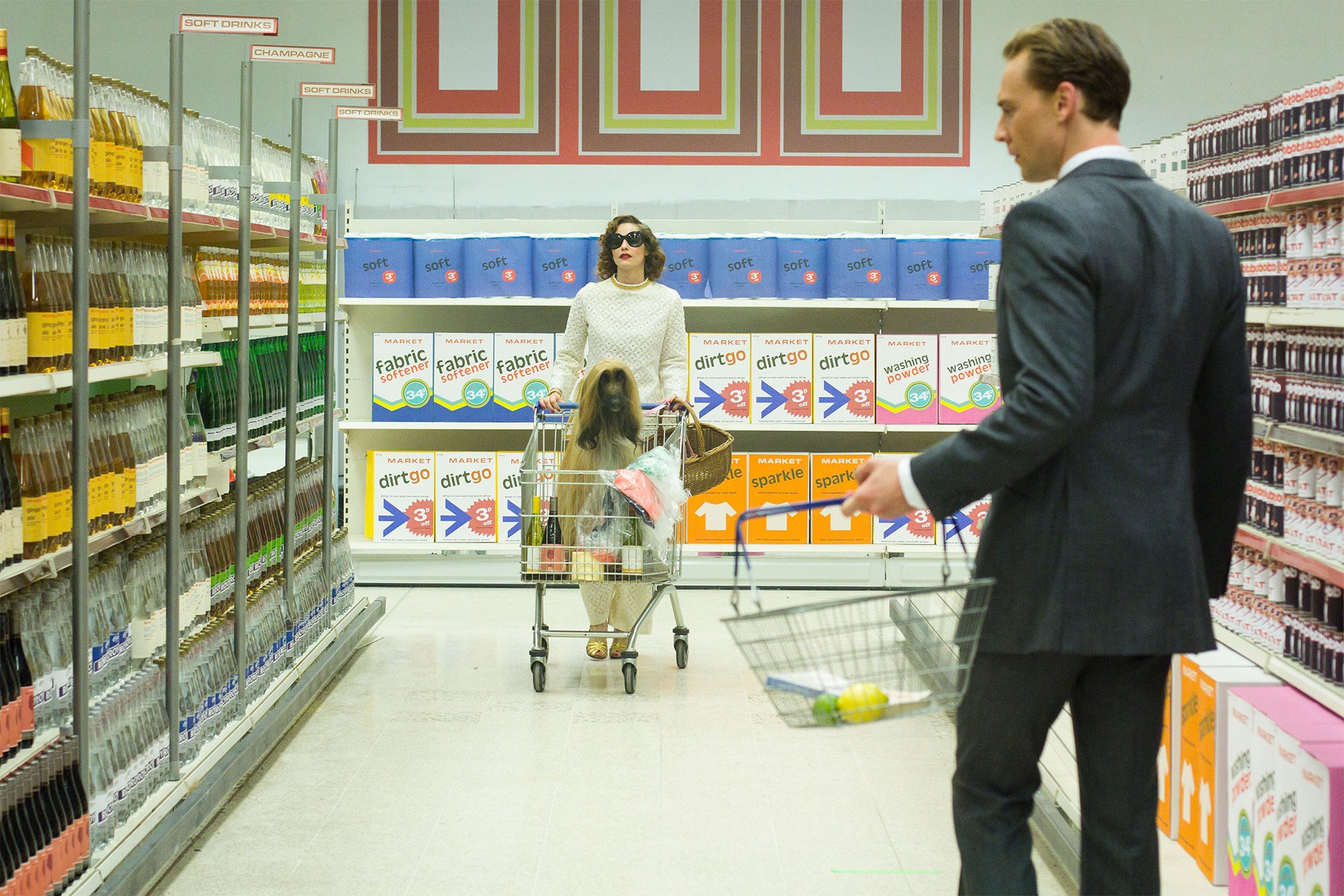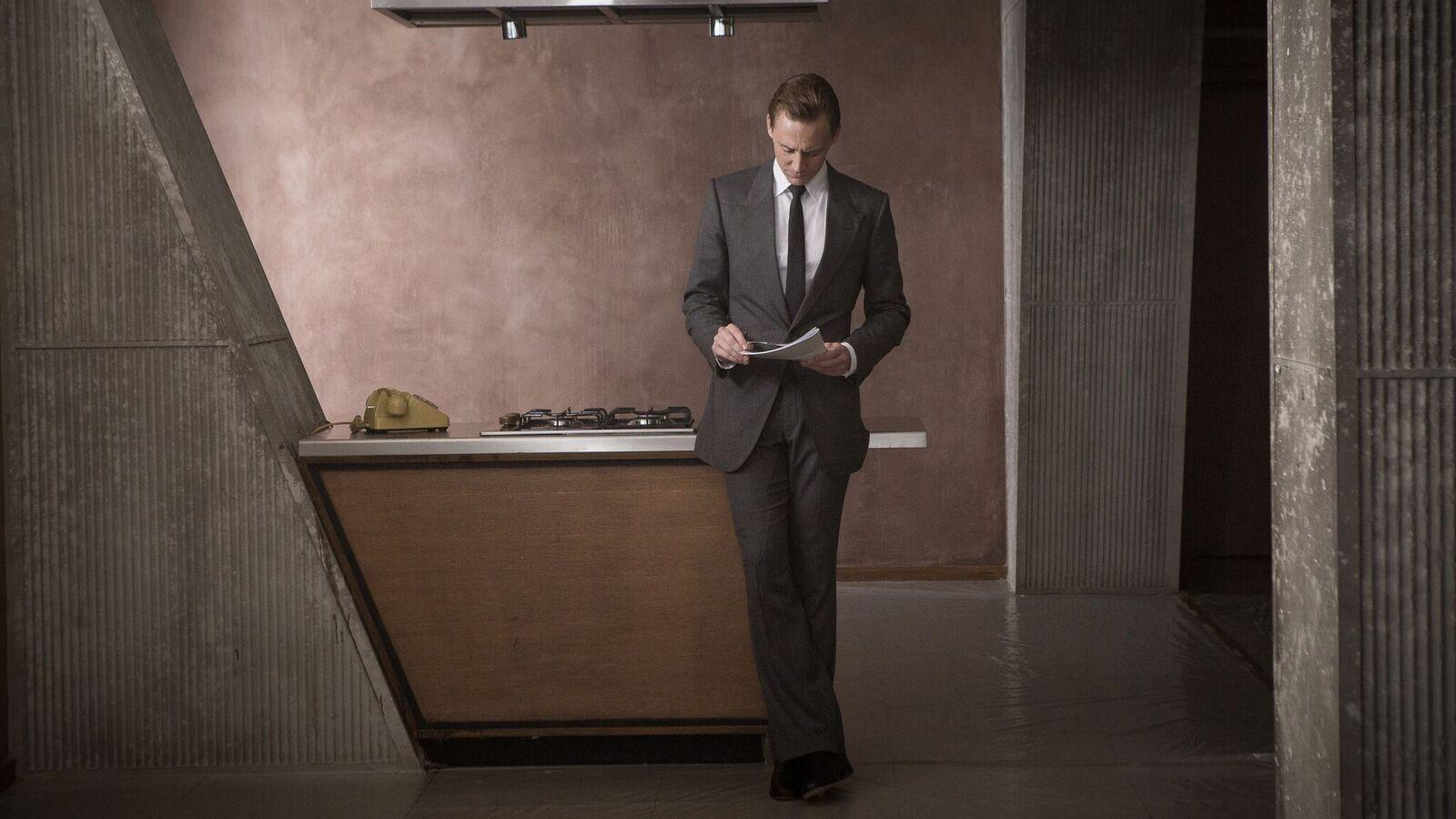Director Ben Wheatley comes through with the promise of bringing JG Ballard’s frightening vision of a retro-future where high-rises have become small cities, tension between social classes are reaching a boiling point and a cover version of ABBA’s ‘SOS’ is used to unsettling effect.

It is a disturbing thought that the socio-political satire of High Rise seems so pertinent in the modern age when JG Ballard wrote the confrontational novel back in 1975. The image of the sterile high-rise towering over an area of London symbolises a nightmarish vision of where infrastructure and state capitalism could take us if it continues to favour the elitist rich over the more traditional family. It is then the opportune time for the long in production film adaptation to make its mark on audiences with its biting dystopian vision of class warfare.

Set in a fictionalised version of the 1970s, Dr Robert Laing (Tom Hiddleston) moves into a high-rise tower that houses the upper and middle classes under one roof. Providing its residents with many services from the outside world including a supermarket and a primary school, the towering behemoth of the high-rise gives little reason for many to leave its walls. Social advancement is granted through levels and dominance is dictated by who can host the wildest party.
The high rise’s architect Anthony Royal (Jeremy Irons) sees his creation as a paradigm for change, leading humanity into a new Utopian age. Blinded by his achievements, the reality is his project is crumbling at its seams. With daily power outages and increasing tension amongst its residents, it soon erupts into a full scale conflict, with the levels fighting for control of the high-rise and its resources.
Through it’s relatively brisk run time of 119 minutes, the film is able to capture a microcosmic society on the brink of collapse and its eventual decline. The tower becomes a character within itself, bringing about the ugliness and bestial urges within its tenants. Within its long corridors and concrete walls, there is a dreading sense of isolation, brought to life through the claustrophobic production design. The levels are all given a distinct look with the monotone colours of the upper levels creating an oppressive tone while the lower levels of the middle class families fill the structure with warm colours and life. The production design is meticulous in detail, making the world that more believable.
The music soundtrack should also be praised with the standouts being two cover versions of ABBA pop classic ‘SOS’. One is an 18th century rendition representing the arrogance of the wealthy residents and the other, an unsettling cover by Portishead that fits nicely with the mental decline of the film’s characters as the high-rise slowly consumes them.

Such a crazy world would not be complete without a cast of crazy characters to fill it with. Played brilliantly by the charming Tom Hiddleston, Robert Laing starts out as a typical protagonist, an every man looking to find solitude within this astonishing architectural feat, but it becomes clear that the people we should fear the most are the ‘self-contained’ types like Laing. Hiddleston truly is astonishing in how he presents the psychological decline of Laing through his relationship with the other residents and his allegiances during the chaos.
Jeremy Irons, Sienna Miller, Elisabeth Moss and Luke Evans close off the main cast, all putting in fantastic performances as some of the other disturbed residents of the high-rise. Evans especially, is incredibly terrifying as the bestial documentary filmmaker looking to expose the truth within the high-rise.
While the film is certainly palpable in tension and dripping in atmosphere, the black comedy tone of the film may be off-putting for some audiences as it draws into its final strange act. One must remember that this film is not intent on predicting the future, but more of a science fiction fantasy that is commenting through its socio-political undertones and bleakly satirical fashion, issues of social class and the loss of humanity within the grander scheme of capitalism.
To director Ben Wheatley and writer Amy Jump’s credit though, they have successfully taken a difficult novel and adapted it to the screen with all of its intricacies and themes intact. It’s not a step-by-step faithful visual representation of the novel, but it brings Ballard’s disturbing vision to life and for those that have been waiting for a transition to the silver screen, that will be enough.
High Rise is in Australian cinemas now.
Have you seen it? Share your thoughts below.






